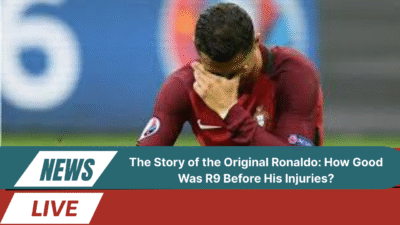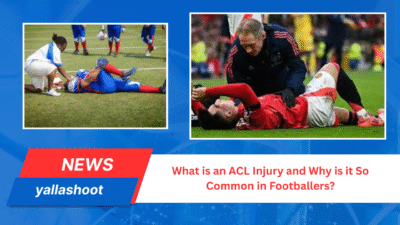Why Do Footballers Cover Their Mouths when speaking on the pitch? Have you ever watched a football match and wondered why top players hide their lips with their hands during conversations? Is it just a quirky habit, or is there a deeper reason behind this fascinating behavior?
This question has intrigued fans, journalists, and analysts for years. In the modern game, where every movement is scrutinized by millions, even the smallest gesture carries meaning. Covering the mouth has become a common sight among players, coaches, and even referees. But what drives this phenomenon? Is it purely about avoiding lip-reading, or does it have links to tactical privacy and psychological pressure?
The truth is that this simple act is a complex mixture of strategy, communication, and even cultural symbolism. To understand it better, we need to explore multiple dimensions: the growing threat of lip-reading technology, the need to this insightful guide on terrace chanting on-field communication, the role of fans and media in spreading speculation, and the cultural rituals that shape player behavior. Just like in this insightful guide on terrace chanting, football is full of unspoken rules, and covering the mouth is one of them.

The Curiosity Behind Covered Mouths in Football
Football is not just about scoring goals; it’s about control, precision, and communication, When players cover their mouths, they are not only hiding words but also safeguarding emotions, strategies, and private exchanges from the public eye.
Lip-Reading and Media Pressure
The Rise of Lip-Reading Technology
Advancements in broadcast technology mean that every word a player utters can be analyzed. Cameras with ultra HD zoom allow journalists and fans to attempt decoding conversations. This creates unwanted attention and can lead to misinterpretation of private talks.
Preventing Media Speculation
Players are under constant surveillance. Even a casual chat with an opponent can spark headlines and rumors. By covering their mouths, they minimize the risk of being misunderstood. Just as seen in this analysis of Alexander-Arnold’s passing, details matter—and protecting dialogue is just another detail of the modern game.
Tactical Privacy on the Pitch
Protecting Team Strategies
Managers and captains often deliver critical instructions during matches. If rivals decode even a few words, it could jeopardize the team’s strategy. Covering the mouth ensures that on-field communication remains private.
Famous Examples of Tactical Secrets
Big matches have shown managers whispering tactical changes. Imagine the consequences if opposition analysts could lip-read these strategies. For clubs investing millions, secrecy is not optional—it’s essential.
On-Field Communication Beyond Words
Body Language and Gestures
Football communication extends far beyond spoken language. Hand signals, eye contact, and body positioning are integral. This silent dialogue complements covering the mouth.
Silent Communication Among Teammates
Players often rely on coded gestures, especially during set pieces. Covering the mouth is an additional safeguard, ensuring instructions remain hidden from cameras and rival analysts.
Cultural and Psychological Dimensions
Respect, Superstition, and Player Habits
For some, covering the mouth is cultural or superstitious. Players develop habits over time, and once something feels like protection, they continue it instinctively.
The Influence of Fan Behavior
Fans can be unforgiving. Misheard or misinterpreted comments may cause controversies. Just like financial regulations in football are designed to protect fairness, covering mouths is a way to protect reputations.
Comparisons With Other Sports
Basketball, Tennis, and Rugby Practices
Athletes in other sports rarely cover their mouths, but football is different because of its global exposure and intense fan engagement.
What Makes Football Unique?
Footballers are under unparalleled scrutiny. Every gesture is magnified, making mouth-covering a natural adaptation.
Media and Fan Interpretations
How Journalists Decode Player Behavior
Journalists often speculate on conversations, sometimes without evidence. This increases the need for discretion.
Fan Reactions and Social Media Buzz
Fans love analyzing clips and sharing theories online. This digital culture amplifies why players feel compelled to hide their lips.
The Future of Communication in Football
Will Players Always Cover Their Mouths?
As long as football remains under the global spotlight, players will likely continue this practice.
Technology, Privacy, and Sports Evolution
From VAR to advanced analytics, technology has reshaped the game. Covering mouths might remain an old-school defense against modern surveillance. For deeper fan insights, explore this budget midfielder guide.

FAQs
Q1: Do all footballers cover their mouths when talking?
No, but it has become common among high-profile players and managers due to media pressure and privacy concerns.
Q2: Is covering the mouth against the rules of football?
No, it’s a personal choice and completely within the rules.
Q3: Can lip-reading really reveal strategies?
Yes, advanced lip-reading can reveal words and phrases, which is why teams take precautions.
Q4: Why don’t athletes in other sports do the same?
Because football attracts more global attention and scrutiny compared to most other sports.
Q5: Will technology replace the need for covering mouths?
Possibly, but cultural habits and the need for privacy may keep the practice alive.
Conclusion
Covering the mouth has evolved from a subtle gesture into an essential part of football’s unwritten code. It protects players from speculation, ensures tactical privacy, and reflects the cultural weight of the game. Just as traditions, rules, and fan rituals shape football’s identity, this small act symbolizes the game’s constant balancing act between visibility and secrecy.










